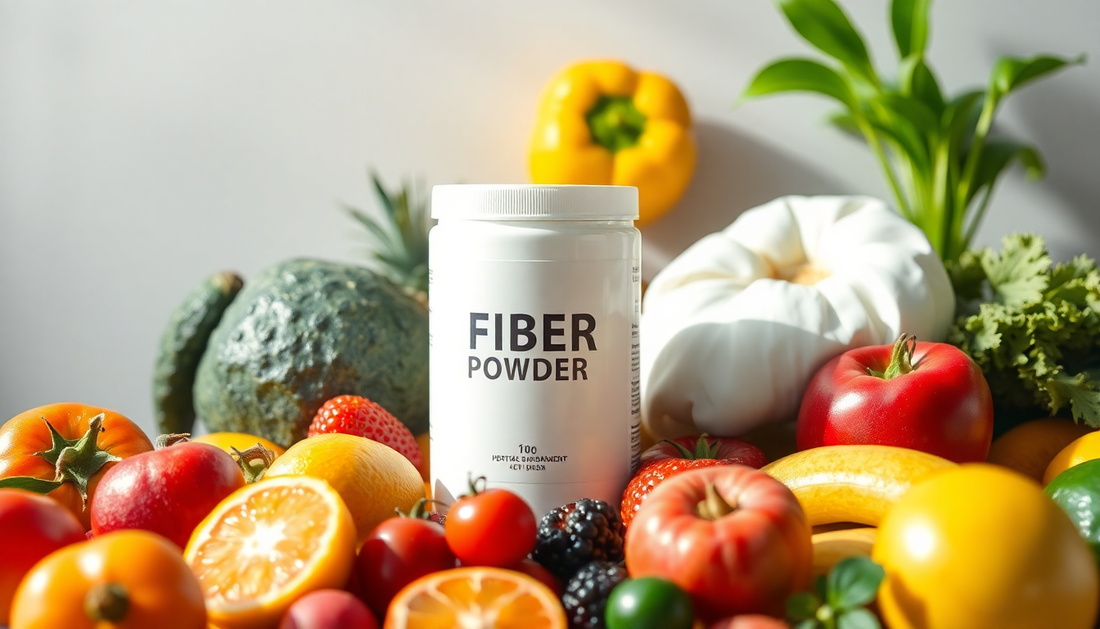
Fiber Supplements: A Key Ingredient for Post-Surgical Diet
Share
Recovering from surgery can be a delicate and challenging process, requiring a carefully curated diet to support the body's healing and restoration. A key component of a post-surgical diet is the incorporation of fiber supplements. Fiber plays a vital role in maintaining digestive health, preventing constipation, and supporting overall well-being during the recovery period (National Library of Medicine).
Understanding Fiber Supplements
Fiber supplements come in various forms, including powders, capsules, and gummies. These supplements provide concentrated soluble and insoluble fibers, both of which promote healthy bowel function and support the digestive system (Harvard Health). Soluble fiber, such as psyllium husk and methylcellulose, softens stool and regulates bowel movements. Insoluble fiber, like wheat bran and cellulose, adds bulk and aids in moving stool through the intestines. Both fiber types can alleviate common post-surgical digestive issues, such as constipation and diarrhea (Mayo Clinic).
Benefits of Fiber Supplements Post-Surgery
The importance of fiber supplements in a post-surgical diet cannot be overstated. Here are some key benefits they provide:
Improved Digestion
Post-surgery, the digestive system may be temporarily disrupted, leading to bowel movement challenges. Fiber supplements help restore regular bowel function, reducing constipation risk and promoting digestive comfort (American Society of Colon and Rectal Surgeons).
Preventing Constipation
Constipation is common after surgery due to factors like anesthesia and pain medications. Fiber supplements can soften stool and promote regular bowel movements, preventing discomfort and complications associated with constipation (National Institute of Diabetes and Digestive and Kidney Diseases).
Supporting Wound Healing
Fiber supports the body’s wound healing process by promoting healthy blood flow and an appropriate inflammatory response. By incorporating fiber supplements into their diet, patients may experience faster, more effective wound healing (National Library of Medicine).
Maintaining a Healthy Gut Microbiome
The gut microbiome, a diverse community of microorganisms in the digestive system, plays a crucial role in overall health. Fiber supplements nourish the gut microbiome, which can be disrupted during surgery and recovery (Cleveland Clinic).
Incorporating Fiber Supplements into a Post-Surgical Diet
To safely incorporate fiber supplements into a post-surgical diet, follow your healthcare provider’s advice. Recommended fiber intake may vary depending on the surgery type and individual needs (American Journal of Clinical Nutrition). Start with a low dose of fiber and gradually increase it, giving the body time to adjust.
Special Considerations for Bariatric Surgery Patients
Bariatric surgery patients, such as those who’ve undergone gastric bypass or sleeve gastrectomy, have unique dietary needs that make fiber supplementation essential. Malabsorption and nutrient deficiencies are common challenges for these individuals, making fiber supplements particularly important (ASMBS). In some cases, healthcare providers may recommend higher doses or specific fiber types for these patients, ensuring proper support during recovery and in the long term.
Choosing the Right Fiber Supplement
When selecting a fiber supplement, consider factors like the type of fiber, source, and product quality. Key considerations include:
- Soluble vs. Insoluble Fiber: Look for a balanced supplement containing both types of fiber.
- Purity and Quality: Choose supplements free from fillers, artificial additives, or harmful ingredients (Harvard Health).
- Ease of Use: Consider the form (powder, capsule, or gummy) that best suits your routine.
- Consultation with Healthcare Providers: Work closely with your doctor or dietitian to choose the most suitable fiber supplement.
Potential Side Effects and Precautions
While generally safe, fiber supplements may cause mild side effects like bloating, gas, and abdominal discomfort, especially during initial use. Gradual introduction and slow dosage increases can help minimize discomfort (Cleveland Clinic). Adequate hydration is essential when taking fiber supplements, as they can increase dehydration risk without sufficient fluid intake.
Conclusion
Fiber supplements are a crucial component of a post-surgical diet, promoting digestive health, preventing constipation, and aiding wound healing. For the best results, collaborate with healthcare providers to develop a tailored fiber supplement plan, ensuring a safe and effective recovery process.
Recovery is a journey, and the right fiber supplements can be instrumental in supporting the body’s healing and overall well-being.
Medical Disclaimer: This article is for informational purposes only and should not be considered medical advice. Always consult your healthcare provider before starting any new dietary or supplement regimen, especially after surgery.
